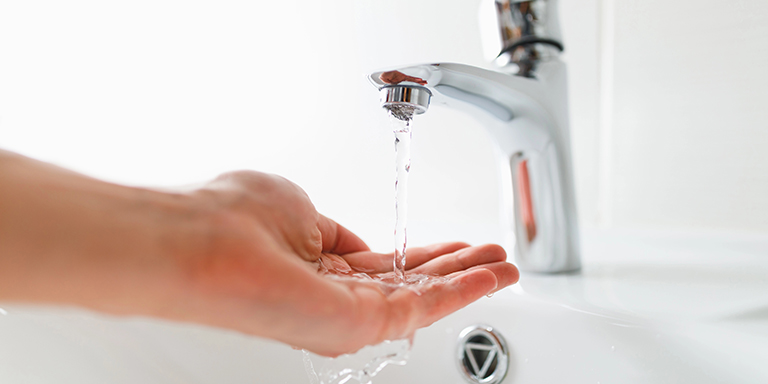Water pressure is something most homeowners rarely think about—until there’s an issue. Whether it’s a weak showerhead or strange noises in your plumbing, water pressure plays a critical role in home functionality and the long-term health of your plumbing system.
But what exactly is considered normal water pressure? What are the risks of having it too low or too high? And most importantly, how can you address and resolve water pressure problems? This guide will answer all these questions and more, helping you ensure your home’s water pressure is right where it needs to be.
Why Water Pressure Matters in Your Home
Imagine turning the faucet only to find a trickle of water, or worse—experiencing a burst pipe in the middle of the night. Both low and high water pressure can cause disruptions and costly damage.
Good water pressure ensures smooth operations for tasks like bathing, laundry, and dishwashing. It also keeps your plumbing and appliances running efficiently. On the flip side, irregular pressure can lead to leaking pipes, reduced appliance lifespan, higher water bills, and general frustration for homeowners.
What’s Considered Normal Water Pressure?
For the average household, normal water pressure ranges between 40 to 60 psi (pounds per square inch). A reading around 50 psi is considered ideal for most homes—balancing strong performance and plumbing safety.
If your pressure consistently falls below 40 psi, you might face challenges like low-flow showers and long dishwasher cycles. On the other hand, pressure above 60 psi can strain your plumbing system, increasing the risk of pipe damage and unnecessary water waste.
You can measure your home’s water pressure using a water pressure gauge, which you can find at most hardware stores. Simply attach the gauge to an outdoor faucet, turn the water on, and note the reading.
The Impact of Low Water Pressure
Low water pressure can be a frustrating ordeal, disrupting daily routines.
Common Everyday Hassles Caused by Low Pressure:
- Weak shower streams that make bathing less enjoyable.
- Water trickling out of faucets, making chores like rinsing dishes or washing hands time-consuming.
- Dishwashers and washing machines fail to operate at peak performance, often requiring longer cycles and more water.
Financial and Long-term Consequences:
- Appliances such as water heaters and dishwashers may wear out faster due to inefficient operation.
- Potential increase in utility bills as appliances work harder and longer to perform their tasks.
Clearly, fixing low water pressure isn’t just about convenience—it’s an investment in avoiding bigger problems down the line.
Common Causes of Low Water Pressure and How to Identify Them
Low water pressure doesn’t happen without a reason. Identifying the root cause is key to solving the problem effectively.
Likely Culprits:
- Clogged Pipes or Faucets
Over time, mineral deposits and debris can accumulate within your pipes or faucet aerators, restricting water flow.
How to Check: Unscrew your faucet aerators or showerhead to inspect for buildup.
- Leaks in the Plumbing System
Even small leaks in pipes drain water pressure significantly.
How to Check: Look for signs of water stains, damp areas, or an unexplained increase in your water bill.
- Issues with the Municipal Supply
Sometimes, the issue lies outside your home, with your city’s water main.
How to Check: Ask neighbors if they’re experiencing similar problems.
- Old or Corroded Pipes
Aging pipes can rust or narrow, reducing water flow.
How to Check: If your home is over 20 years old and still has its original plumbing, this may be the culprit.
Solutions for Improving Low Water Pressure
Once you’ve pinpointed the issue, here’s how you can address it effectively:
- Clean and Unclog Fixtures
Remove and soak showerheads or faucet aerators in vinegar to dissolve mineral deposits.
- Repair Leaks
Even minor leaks should never be ignored. Start with visible leaks or get a professional to inspect your system thoroughly.
- Install a Pressure-boosting Pump
If your home gets water from a shared supply line or has limited pressure from the utility, a pump can boost your household’s water flow.
- Replace Old Pipes
Consult a plumber, like Bodenheimer Plumbing, to upgrade aging, corroded plumbing for better long-term results. Modern materials like PEX or copper piping may significantly improve pressure and water quality.
The Risks of High Water Pressure
When it comes to water pressure, more isn’t always better. Excessively high pressure can wreak havoc on your plumbing system.
Why High Water Pressure is a Problem:
- Leaks and Pipe Damage
Constant high pressure wears down joints and connections, leading to leaks or, worse, burst pipes.
- Damaged Appliances
Appliances like dishwashers and washing machines may experience faster wear-and-tear or malfunction altogether.
- Wasted Water, Higher Bills
High pressure leads to increased water usage, resulting in higher utility costs.
Reducing High Water Pressure
Managing high water pressure is crucial for the safety of your home. Here’s how you can keep it in check:
- Install a Pressure Regulator
A pressure regulator is a device that can be attached to your water line to control and reduce overly high pressure.
- Inspect the Pressure Regularly
Use a pressure gauge periodically to check your system’s psi and ensure it remains within the healthy range of 40–60 psi.
- Check for Signs of Damage
If your pipes are frequently making banging noises (water hammer) or you notice leaks, call a professional plumber to address issues caused by prolonged high pressure.
Protect Your Home by Tackling Water Pressure Issues
Whether your water pressure is too low or too high, ignoring the issue can cost you valuable time, performance, and money.
Regularly monitoring your water pressure is an important step in keeping your home’s plumbing system healthy. For low-pressure woes, consider investigating clogged pipes or installing a booster pump. For high pressure, make sure a regulator is in place to prevent unnecessary damage.
If you’d rather leave it to the experts, reach out for a professional inspection. At the end of the day, balanced water pressure keeps your home’s plumbing running smoothly, saving you from costly repairs and improving your quality of life.
Take Action Today
Noticed unusual water pressure in your home? Our team of plumbing experts at Bodenheimer Plumbing can help diagnose and resolve any issues you’re facing. Schedule a professional inspection today and enjoy peace of mind knowing your home’s water system is in perfect balance.


